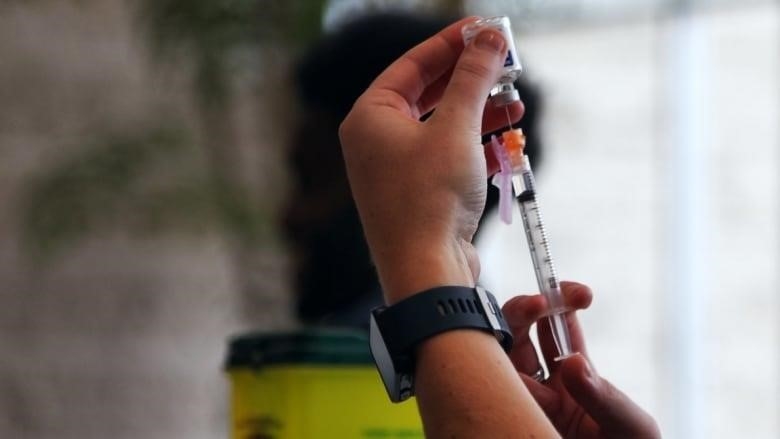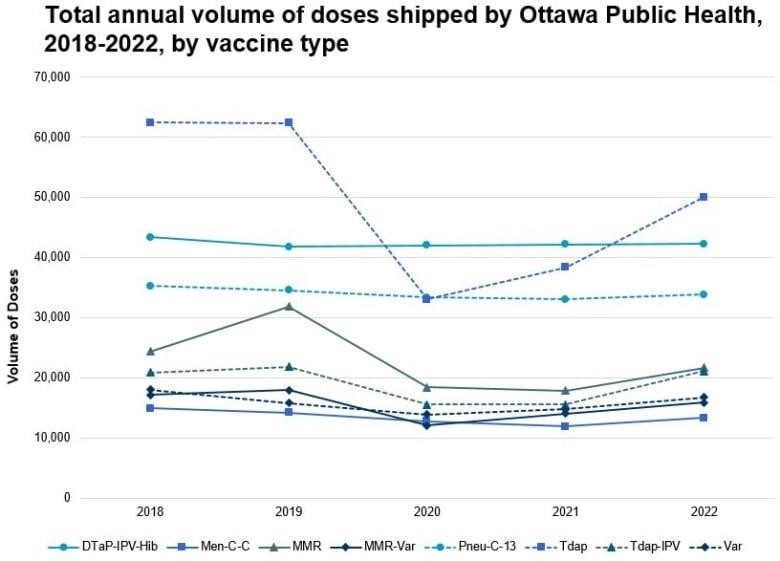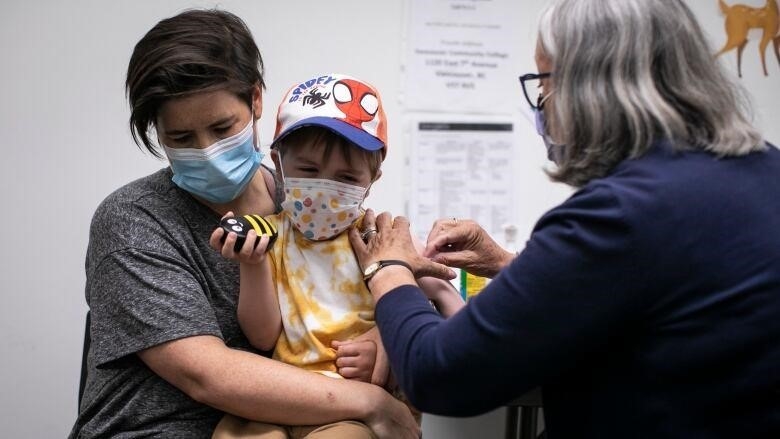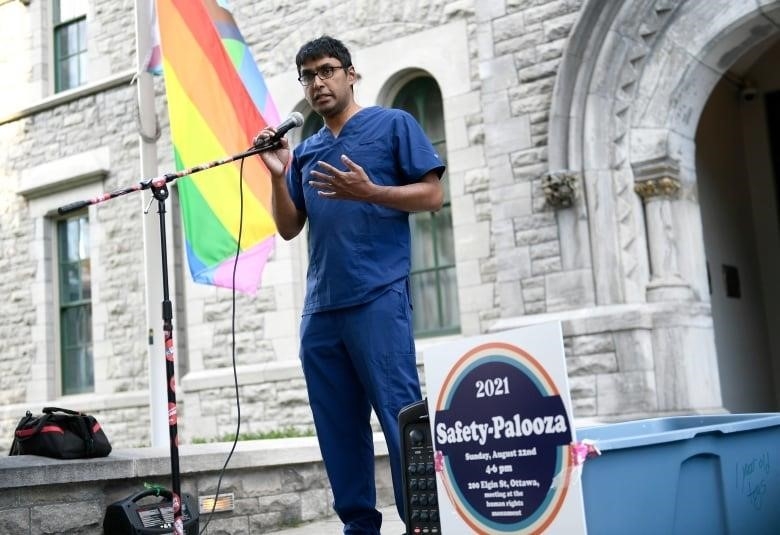
Overall orders for routine vaccines are 10% lower than they were before the pandemic
New data from Ottawa Public Health shows that thousands of children aren’t protected against measles and other diseases because they didn’t get routine vaccinations during the pandemic (OPH).
The OPH measures how many people get shots by keeping track of how many orders for vaccine supplies it gets from health care providers who give shots.
According to the most recent data, orders for the MMR vaccine, which protects against measles, mumps, and rubella, and the MMR-V vaccine, which protects against those three diseases plus varicella (chickenpox), are expected to be 30% lower in 2020 than they were in pre-pandemic years.
Orders for the measles vaccine continued to drop between 10 and 20% in 2022 compared to the years before 2020, according to the OPH.

“Based on these distribution numbers, we think that about 15,000 kids in Ottawa won’t get their MMR or MMR-V shot between 2020 and 2022,” an OPH spokesperson told CBC in an email.
Measles is a very contagious disease that most children used to get before a vaccine was made available in the 1960s.
Public Health Ontario says that measles is still the leading vaccine-preventable disease that kills children around the world. An average of one to two children die for every 1,000 cases.
With two shots of the MMR vaccine, you are almost guaranteed to never get the measles again.

“It’s always worrisome to hear that some children may not be up to date,” said Marie-Claude Turcotte, who is in charge of immunization at OPH. “That means they aren’t as safe from diseases that vaccines can protect them from.”
Public health officials have said before that fewer people getting vaccinated increases the chance of a measles outbreak in the city because measles is so easy to spread.
Efforts to catch u
Turcotte said that data from last year shows that the number of orders for all routine vaccines is still 10% lower than it was before 2020, but it is better than 2020 and 2021.
The five-in-one vaccine (for diphtheria, tetanus, pertussis, polio, and haemophilus influenzae type b) is usually given to babies at their six-month checkup. During the pandemic, there was little to no change in how many of these vaccines were ordered.
Ottawa also stopped taking part in the province’s tracking program for school-aged children’s vaccines for two school years, 2020-2021 and 2021-2022.
As required by Ontario law, Panorama reminds parents to let OPH know what vaccines their child has had. Late in 2022, the program was brought back by the public health agency, and notices were sent to more than 12,000 students born between 2005 and 2015.
She said, “That’s a reminder for the parents to go get the child vaccinated.”
Even a “small” drop makes a difference, according to a researcher
When it comes to measles and whooping cough, Dr. Kumanan Wilson said that every new child who gets vaccinated makes a difference. He is the chief science officer at CANImmunize and a professor of medicine at the University of Ottawa.
He said, “These are some of our most dangerous viruses, so we need a lot of people to get vaccinated.” “Outbreaks of measles can happen if even a small number of people don’t get their shots.”

Wilson said that the number of new registrations for CANImmunize’s free app, which lets parents keep track of their children’s vaccinations, dropped during the pandemic.
He said earlier this week, “We’re still a little bit behind.”
Even though 1% to 2% of children in Ottawa don’t get vaccines because of moral or religious objections, Wilson thinks that confusion is a big reason for the vaccine lag.
“We like to talk a lot about people who don’t want to get vaccinated and the anti-vaccine movement, but a lot of these problems are often caused by logistics,” he said.
The company is working with CHEO to make software that will let parents in Ottawa and four surrounding counties schedule vaccine appointments for their children online and let health units track vaccinations if parents agree.
The company said that parents should be able to get it in May. Wilson said he hopes that new tools will help make the booking process easier and better, which will lead to more people getting vaccinated.
OPH has also made more routine vaccinations available at its family and community vaccination clinics and wellness hubs. Parents who don’t have a family doctor or another health care provider can make an appointment for a vaccine at one of the clinics through the website.
